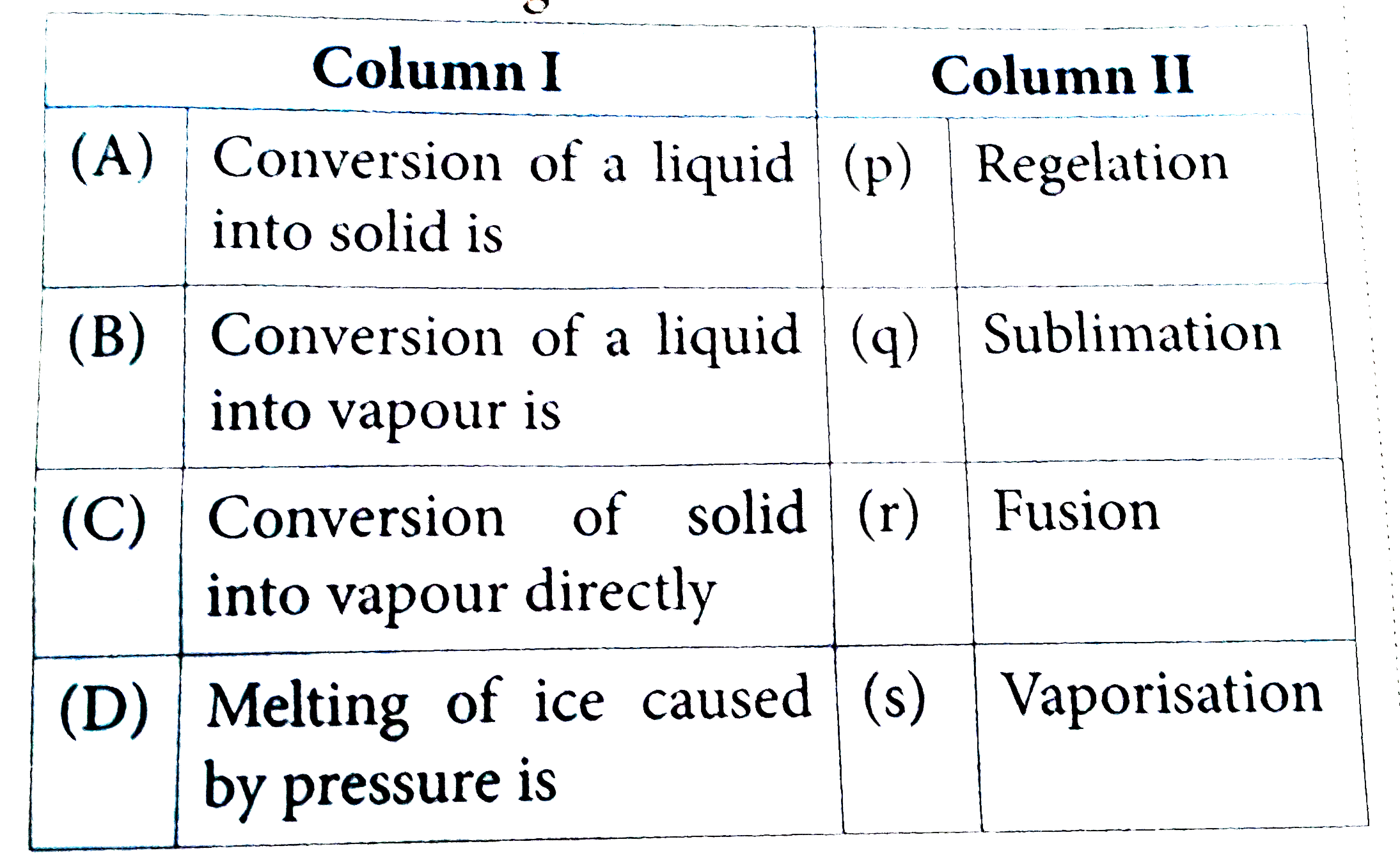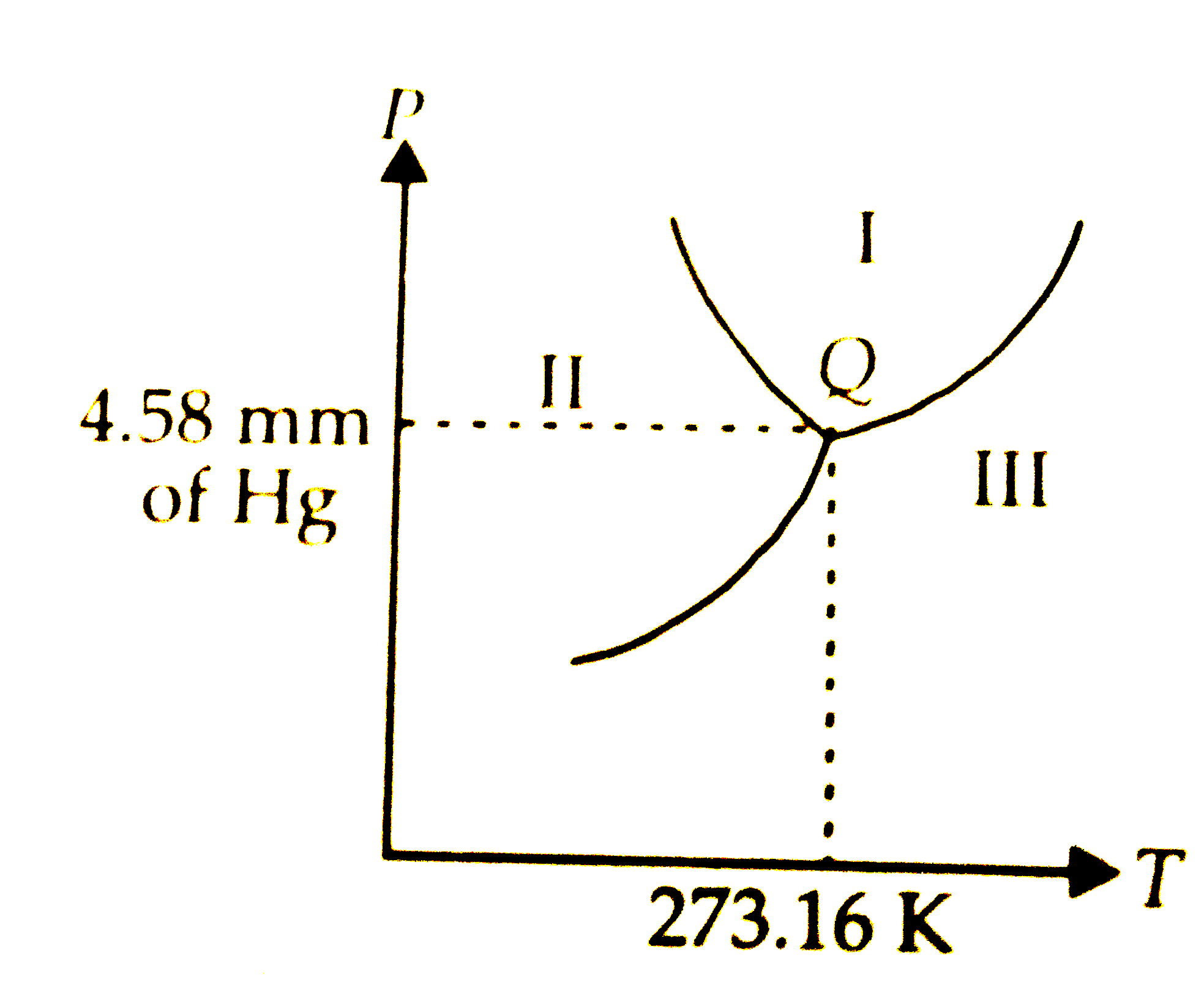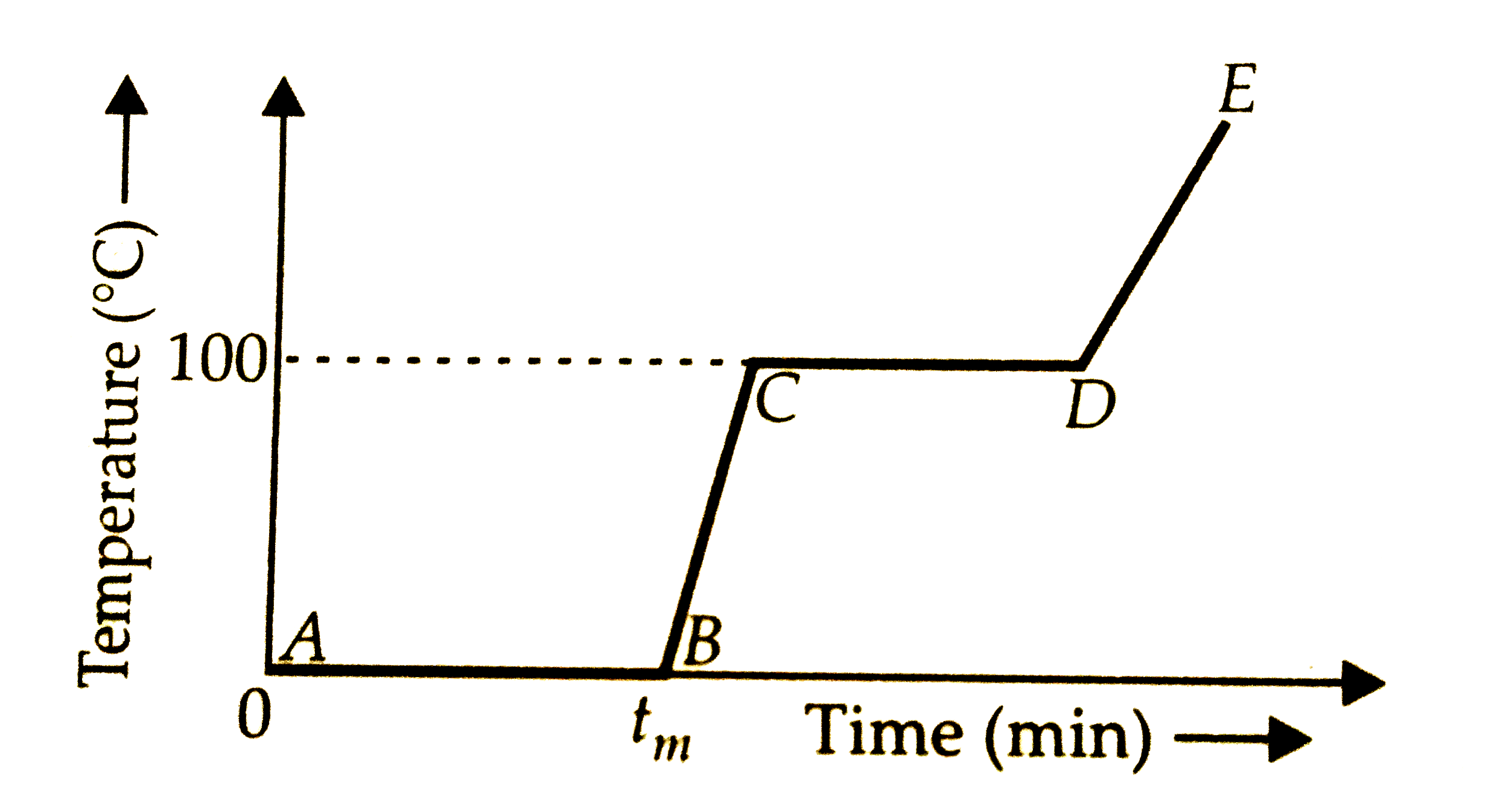Complete Solutions to Change Of State of chapter THERMAL PROPERTIES OF MATTER of Class 11 book with complete answers and questions
| Class 11 | PHYSICS |
| Chapter | THERMAL PROPERTIES OF MATTER |
| NCERT FINGERTIPS | Change Of State |
| Number Of Questions | 13 |
| Academic Year | 2023-24 |
The change from solid sate to vapour state without passing through the liquid state is called………
View SolutionMatch the following.

View SolutionWhich of the following statement is correct ?
View SolutionIn the phase diagram showns, the point Q corresponds to the triple point of water. The region I, II and III respectively correspond to phases

View SolutionRefer to the plot of temperature versus time showing the changes in the state of ice on heating (not to scale).

Which of the following is correct ?
View SolutionA block of ice at `-10^@C` is slowly heated and converted to steam at `100^@C.` Which of the following curves represents the phenomenon qualitatively?
View SolutionTwo absolute scales `A` and `B` have triple points of water defined to be `200A` and `350B`. What is the relation between `T_(A)` and `T_(B)`?
View SolutionThe triple point of carbon dioxide is `216.55` K the corresponding temperature on the celsius and Fahrenheit scale respectively are
View SolutionThe latent heat of vaporization of a substance is always
View SolutionThe sprinkling of water slightly reduces the temperature of a closed room because
View SolutionIf 10 g of ice is added to 40 g of water at `15^(@)C`, then the temperature of the mixture is (specific heat of water `= 4.2 xx 10^(3) j kg^(-1) K^(-1)`, Latent heat of fusion of ice `= 3.36 xx 10^(5) j kg^(-1)`)
View SolutionIf a ball of `80` kg mass hits an ice cube and temperature of ball is `100 .^(@)C`, then how much ice converted into water ? (Specific heat of ball is `0.2 cal g^(-1)`, Latent heat of ice `= 80 cal g^(-1)`)
View SolutionRays from the sun ar focuseed by a lens of diameter 5 cm on to a block of ice and 10 g of ice is melted in 20 min. Therefore the heat from the sun reaching the earth per min per square centrimetre is
(Latent heat of ice `L = 80 cal g^(-1)`)
View Solution
Change Of State questions and complete solutions for chapter THERMAL PROPERTIES OF MATTER of NCERT FINGERTIPS PHYSICS (HINGLISH) of Class 11